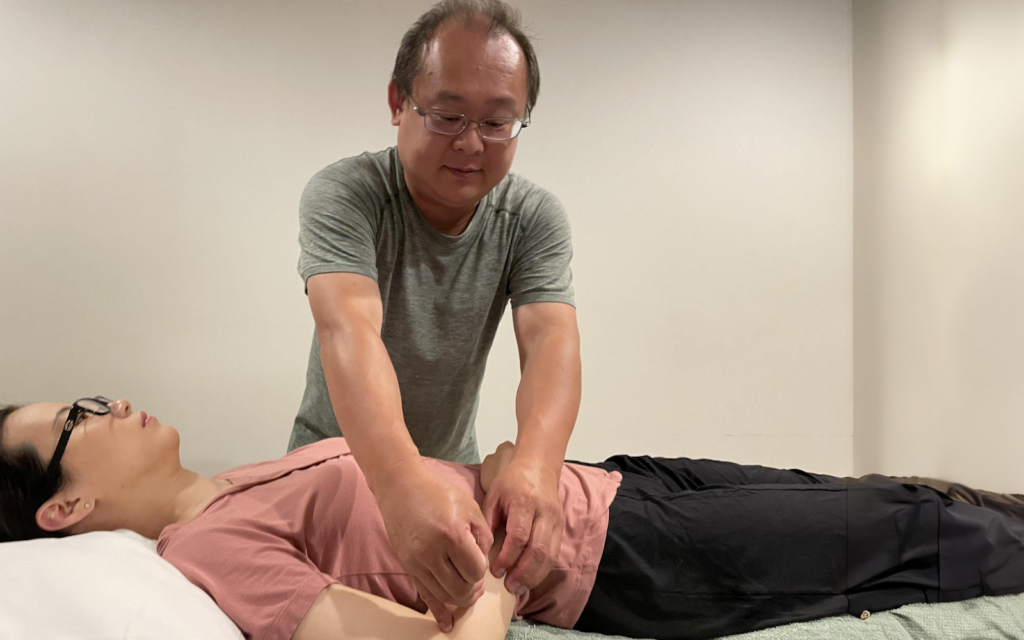
Acupuncture has grown in popularity as an alternative form of treatment for many different health problems – from chronic pain to stress. But like any other type of care, it is important to establish whether or not this would be suitable for you based on what you need and how you live. Throughout these next few sections, we will discuss some considerations when thinking about beginning acupuncture; integrating it with traditional treatments; what might happen while getting acupuncture done; and by then, hopefully, have given enough information so that one can decide if acupuncture seems like a good fit as well as offer tips on maximizing such holistic treatments.
How Do I Know If Acupuncture Is Right for Me?
Acupuncture might be a good fit if you’re looking for an all-natural way of dealing with pain, stress, or chronic conditions and are open to alternative therapies.
Acupuncture may very well be the answer that you’ve been searching for in terms of finding a natural and holistic method of managing various health concerns. If you’re suffering from chronic pain, stress or any other condition like migraines, insomnia or digestive issues – and would prefer not to take medication for it – then this could be suitable for you. It’s also perfect for people who want to try out different types of therapy besides what they’re used to and value a more integrated approach to healthcare. But don’t expect instant results; have some patience because it takes time before one notices any changes after going through several sessions.
What Factors Should I Consider Before Starting Acupuncture?

Consider your health targets, any current medical conditions you have, how comfortable you are with needles and if you can find a qualified practitioner near where you live.
In order to decide whether acupuncture is right for them people must reflect on what they hope to accomplish through this type of treatment. They should also take into account their preexisting health problems and determine if it is safe for them – especially in cases concerning disorders related to bleeding or pregnancy. Moreover, they need to think about the fact that this practice involves sticking thin pins into one’s body so see how much that bothers them! Lastly, make sure there is a licensed acupuncturist close by who can provide safe treatments that work best for each individual person based on his/her medical history. All of these things will allow one to make an informed decision regarding whether or not they should undertake such therapy.
Can Acupuncture Be Used Alongside Conventional Treatments?
Certainly, acupuncture may support allopathic interventions, making them more effective in many cases. However, one should always ask a doctor if it is safe to mix treatments.
While working alongside conventional medical procedures, acupuncture can also act as an independent treatment. For instance, people often get this procedure for better pain control during physical therapy sessions or to reduce drug-induced symptoms. Nevertheless, ensure that you talk about it with your physician before incorporating acupuncture into your plan of care because there might be contraindications and such things need coordination of all aspects of patient care towards achieving optimal outcomes. When used properly this alternative method can greatly boost the efficiency of conventional treatments.
What Are the Signs That Acupuncture Is Working for You?

Indications include lessened pain, more sleep, mood boost and generally feeling better which can come about after a few sessions.
First of all, one of the indications of the workability of acupuncture is when pain or discomfort becomes noticeably reduced. Furthermore, many people have said that their sleep quality has improved significantly as well as having better moods more frequently throughout their days following treatments; they also claim to feel good about themselves overall too. All these positive changes may be observable after only some sittings but it should be noted that certain conditions may need longer periods before any noticeable improvements occur. In addition to this, your energy levels might rise or digestion get better or even immunity strengthen because acupuncture works by balancing energies within the body thereby facilitating natural recovery processes. Be keen on these small changes as signs that the treatment is working for you.
Is Acupuncture Suitable for Long-Term Treatment?
Acupuncture is useful for long-term treatment, in particular for chronic disease control, stress management, and general health care; where sustainable benefits can then be achieved through frequent visits.
For those with ongoing stress or chronic illness, acupuncture is an excellent choice as a long-term therapy. Regular sessions can help keep symptoms under control, prevent them from getting worse, and maintain overall well-being. Over time many people discover that staying with the practice brings about consistent positive results which enable them to manage their conditions better. Be it pain relief, stress reduction or just keeping fit and healthy – you should consider making regular appointments for acupuncture as part of your healthcare routine.
How Can You Determine the Right Acupuncture Schedule for You?
You can figure out the correct acupuncture schedule for your body by considering a number of things including; what you are treating, how severe is it and also what type of response does your body show towards treatment. Discuss this with an acupuncturist who will design an individualized plan.
Determining the right acupuncture schedule is a personalized process that depends on various factors, including the nature and severity of one’s condition and how one’s body responds to treatment. In the beginning, when dealing with acute issues, it may be recommended by your acupuncturist that you go for sessions more often like once or twice per week. As symptoms improve, session frequency might decrease but follow-ups should still be done regularly so as not to lose benefits gained overtime. Therefore, collaborate closely with your acupuncturist on coming up with a treatment plan that matches with your goals and lifestyle.
What Are the Factors That Influence the Frequency of Acupuncture Sessions?
There are many things that can affect how often you need to have acupuncture. The kind of condition that is being treated, its chronicity, your response to treatment and your overall health goals all contribute towards this frequency.
The frequency of acupuncture sessions may vary depending on a number of factors. For example, more sessions may be necessary at first to achieve quick relief for acute conditions like recent injuries or sudden pain onset. Conversely, chronic cases might require ongoing care over an extended period. Moreover, some people see fast results from acupuncture while others take longer; it depends on how your body reacts to the treatment. Furthermore, stress management or wellness maintenance among other general health objectives would guide us in determining the right number of times per week or month one should come for therapy. Your acupuncturist will evaluate these elements and collaborate with you so as to design a plan that will support healing throughout.
Conclusion: Making an Informed Decision About Acupuncture
Acupuncture is a unique and holistic method of healthcare. Nonetheless, it is crucial that one reflects on whether it is compatible with their particular needs and objectives. Such an assessment can be made by looking at aspects like personal comfort levels, health status or access to trained professionals among others; which will help in deciding whether acupuncture is the right path for them. Whether used alone or together with other treatments from the hospital; what matters most is understanding what you are getting into ,being ready for anything and sticking through everything until change happens because sometimes this process may take longer than expected but eventually if done correctly then positive results must follow behind towards achieving good health forever after all said and done
